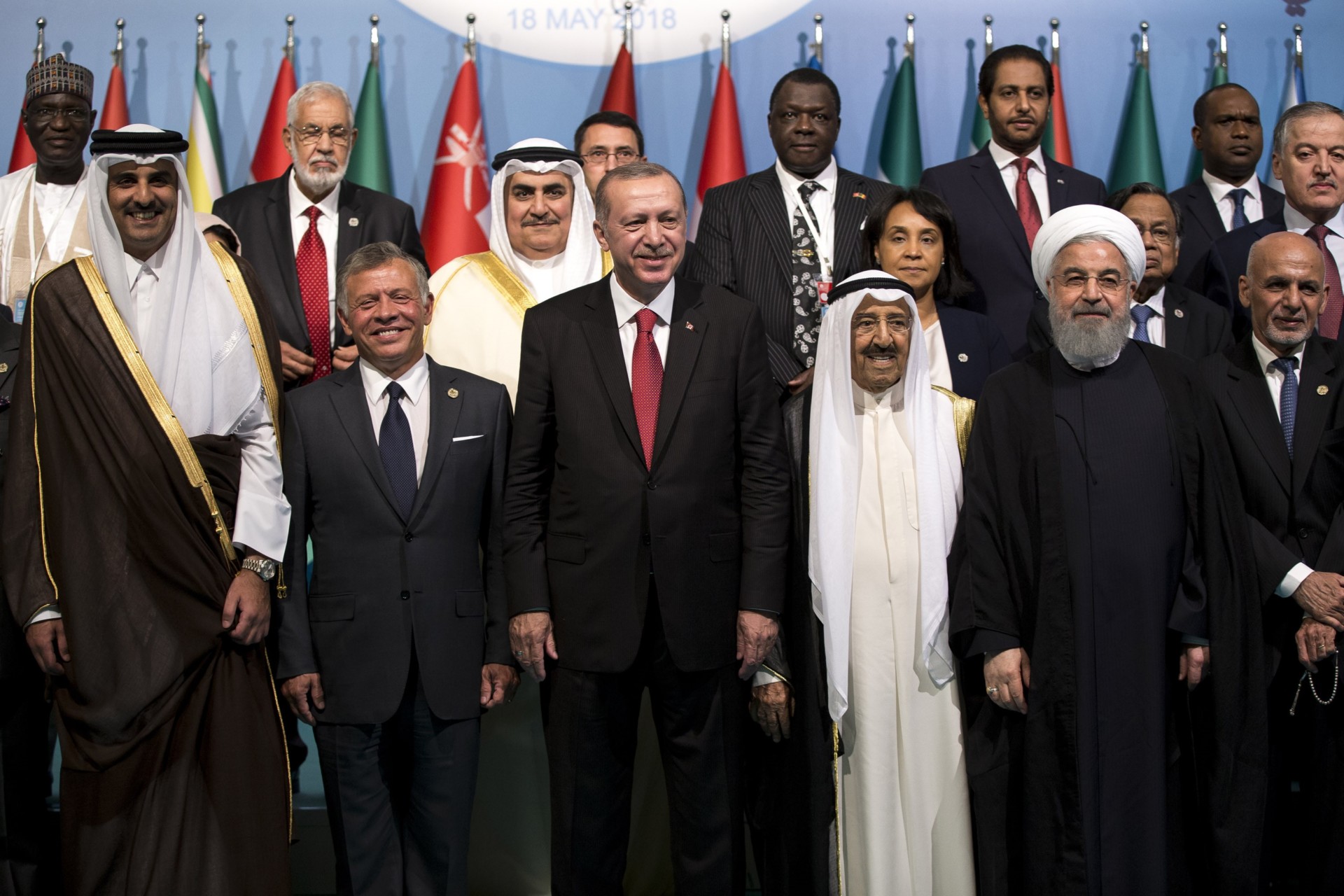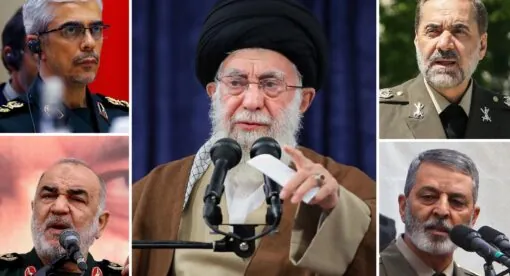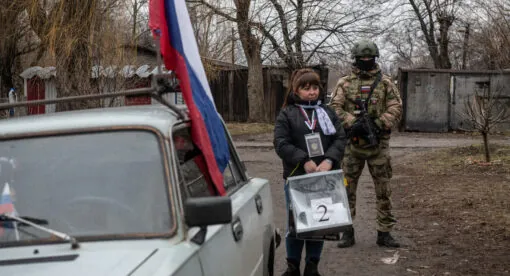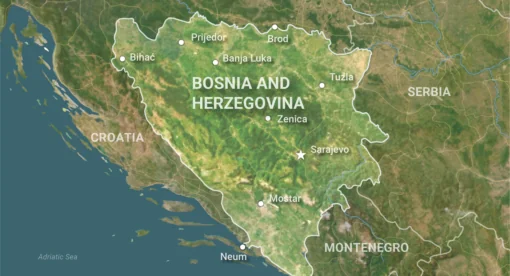Three years have passed since Qatar became embroiled in a geopolitical rift with Saudi Arabia, the United Arab Emirates, Bahrain, and Egypt. The confrontation started when Riyadh and its allies imposed a diplomatic, land, maritime, and air blockade on Qatar on June 5, 2017, in an attempt to force Doha to accept a list of demands, including the closure of media channels and an end to the support of Islamist groups in the Middle East and North Africa.
The third anniversary of this conflict comes amid the COVID-19 pandemic, an unprecedented plunge in oil prices, and a worsening economic situation in all these countries — developments that would ordinarily push these key regional actors to overlook their differences and cooperate. The Saudi-led quartet’s refusal to compromise despite these challenges is further proof that the dispute with Qatar is even more intractable than previously thought.
Complicating Factors
Saudi Arabia and its allies made their demands to be rejected, as senior officials representing the quartet indicated to the author early in the crisis, so that the blockade would drag on without serious efforts to find a common ground. From the perspective of Riyadh and Abu Dhabi, the blockade was a last resort after two decades of Doha defying repeated attempts to resolve cumulative differences. From Doha’s perspective, the accusations against it were baseless, and compliance with the demands would reduce the country to a vassal state. The result was a political stalemate and a ferocious tug-of-war that increasingly deepened the friction, including on a societal level.
What makes the conflict especially intractable is the set of parallel events that accompanied the Qatar blockade. As some officials and knowledgeable sources from the Saudi camp privately acknowledged to the author, the crisis was a way to tie down the Qataris as Riyadh pursued a range of policies to undo what they say were Doha’s efforts to destabilize the region. These policies include proxy wars in places like Libya and Yemen and domestic crackdowns against opposition figures in Saudi Arabia and Egypt. It was no coincidence, for example, that Mohammed bin Salman (MbS) was appointed the crown prince of Saudi Arabia less than three weeks after the blockade began, or that the United Arab Emirates-aligned warlord Khalifa Haftar declared full control of Benghazi in eastern Libya soon after — his most significant breakthrough since he started to rally support against the U.N.-recognized government in Tripoli.
The sense within the Saudi-led camp that it was making progress in multiple theaters contributed to the persistence of the crisis, as Doha was busy trying to navigate the new reality in which it suddenly found itself. Even as Qatar gradually adjusted and moved to deepen its ties with Western and regional powers, Saudi Arabia and its allies still saw benefits in keeping it locked down as they boosted support to their proxies in Libya and Yemen and, in the case of Abu Dhabi, restored diplomatic ties with the regime of Bashar al-Assad in Syria.
The problem for the Saudi camp, however, was that some of these efforts started to backfire. The rise of MbS initially raised hopes in various circles that a Saudi leader would finally take a firm stance against religious extremism and rigid practices that governed the kingdom for nearly a century. But he quickly disappointed: After his appointment, the Saudi government imprisoned some of MbS’ royal cousins, clamped down on dissidents of all political and religious orientations, kidnapped the Lebanese prime minister, and murdered Washington Post columnist Jamal Khashoggi. The worsening situation in Yemen added to the perception that MbS was a rash leader. Those actions prompted many watchers to retrospectively judge his earlier decisions like the Qatar blockade as similarly impetuous.
MbS’ miscalculations were followed by a series of losses in various theaters. Many of his Western allies turned against him or became vehement critics of his approach. Last summer, Abu Dhabi announced unilaterally, rather than through the Saudi-led coalition, the end of its participation in the war in Yemen. Egypt, which previously had refused to participate in that war, also withdrew from a proposed U.S.-led anti-Iran security initiative, dubbed the “Arab NATO,” after disagreement with Riyadh over its mission and leadership. The Yemeni war quickly became a nightmare for Saudi Arabia, in terms of military operations, domestic security as the Houthis intensified their efforts to fire missiles into the kingdom, and public relations as the country came under increased pressure; a notable example was the unprecedented bipartisan bill in the U.S. Congress to block American support to the Saudis in Yemen, passed in April 2019.
This combination of failure and bad publicity set the scene for what would become Riyadh’s biggest disappointment with its allies in years. In September, unprecedented attacks attributed to Iran targeted two state-owned Aramco oil facilities in eastern Saudi Arabia, temporarily cutting the Saudi oil production by half. Saudi officials hoped in vain that the United States would retaliate against Iran, which had downed a U.S. surveillance drone above international waters three months earlier, without a response. But with Washington unwilling to act against Tehran, Riyadh started to signal its desire to de-escalate. Initial threats of retaliation were replaced by outreach attempts to prevent the repeat of such embarrassing attacks in the future. Moreover, the incident caused Riyadh to realize it was on its own in facing domestic and regional challenges.
Fragmentation of American Allies
For the Saudi camp, the real damage of the rift that began three years ago is that it came amid nascent attempts to shape the region, and assessments of the legacy of this crisis should consider this broader geopolitical context. Saudi Arabia and Qatar had pursued an active foreign policy only in the past decade, since the Arab uprisings of 2011, but such policy was mostly conducted alongside most regional powers and closely with Western countries. This approach helped the Saudi-led Gulf Cooperation Council become the region’s political, economic and military powerhouse, as countries like Egypt and Syria became inundated by their own domestic problems. Those shifts in the region had positioned Saudi Arabia to become a greater regional power than it ever was.
Only in 2013 did Riyadh and Abu Dhabi begin to work together and independently from other countries, often against former allies, in an effort to redraw the political map of the region and undo the effects of the Arab uprisings. They backed the military coup in Egypt that toppled the Muslim Brotherhood’s Mohammed Morsi in 2013 and installed Gen. Abdel Fattah al-Sisi; waged a war in Yemen in 2015; and reignited the conflict in Libya in 2017 and again in 2019. The alliance between Saudi Arabia and the United Arab Emirates alienated powerful countries like Turkey and failed to mobilize countries like Egypt, so it ended up weakening the Saudi ability to lead and, more importantly, fragmenting U.S. allies in the region. The seven-year Saudi-UAE adventurism, since 2013, ended in failure, and regional powers like Turkey and Iran came out on top, including in crucial theaters like Libya and Yemen, respectively.
Because of those setbacks in the region, and the challenges at home, Saudi Arabia seems to have emerged as the main loser in the Gulf rift. This reality will be the most consequential of the crisis that started three years ago, more than the persistent tensions among the Gulf neighbors. Even if these countries end the blockade, the Gulf Cooperation Council is over — not because tensions will remain but because the one country capable of making this alliance lead in the region, Saudi Arabia, has been weakened because of the crisis and the parallel events that accompanied it in recent years.
Thus, the most lasting legacy of the rift in the Persian Gulf may be not the enduring tensions between these rich and powerful Middle Eastern powers, or even the end of a functioning Gulf alliance. Rather, it is the fragmentation of American allies and the end of Saudi Arabia’s ability to lead in the wider region.
Hassan Hassan is the Director of the Human Security Unit at the Newlines Institute. He is also the Founder and Editor-in-Chief of Newlines Magazine, an initiative of the Newlines Institute. His research focuses on militant movements, nonviolent extremism, and geopolitics in the Middle East. Hassan has also served as a contributing writer at The Atlantic, The Guardian, and Foreign Policy.
The views expressed in this article are those of the author and not an official policy or position of the Newlines Institute.







